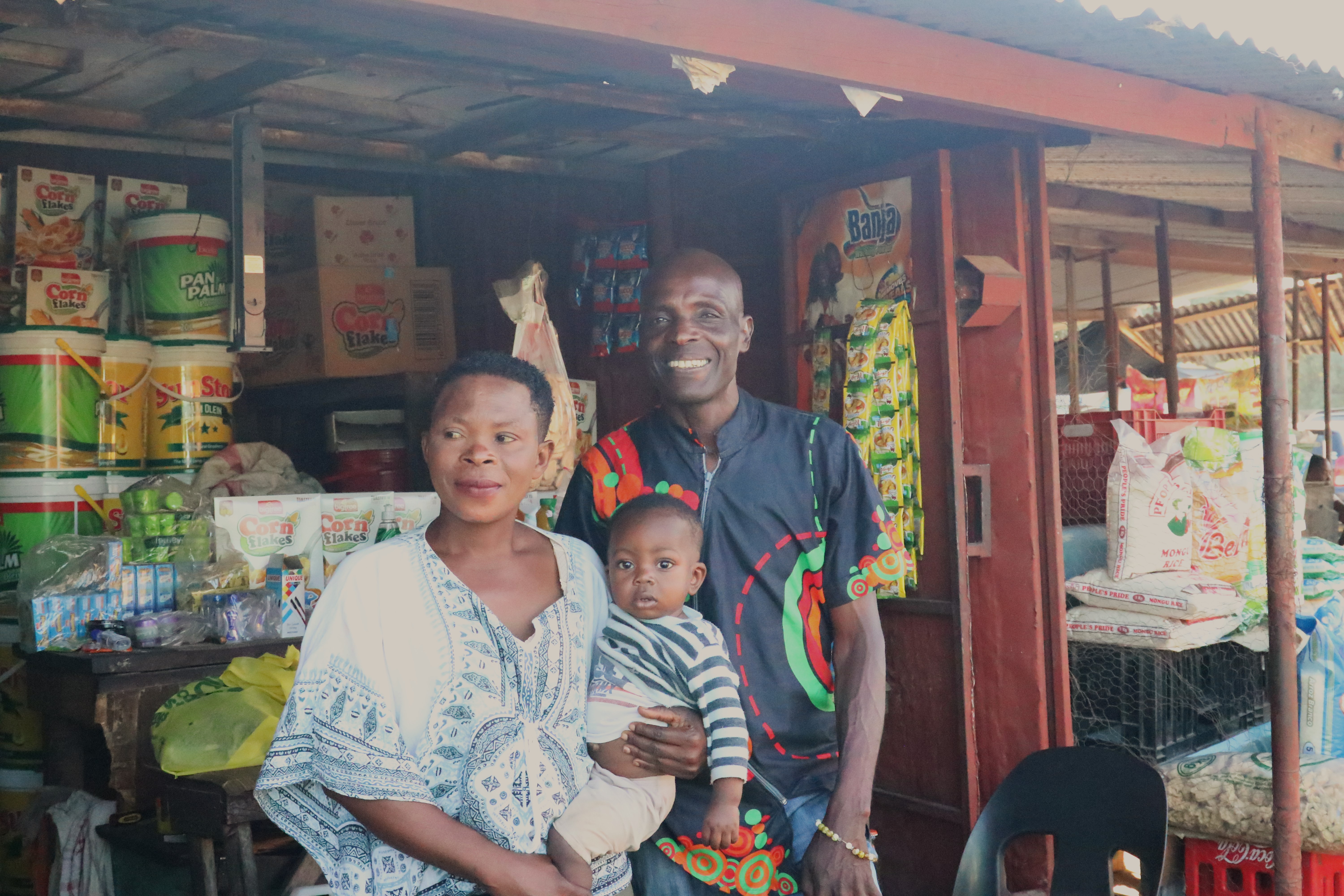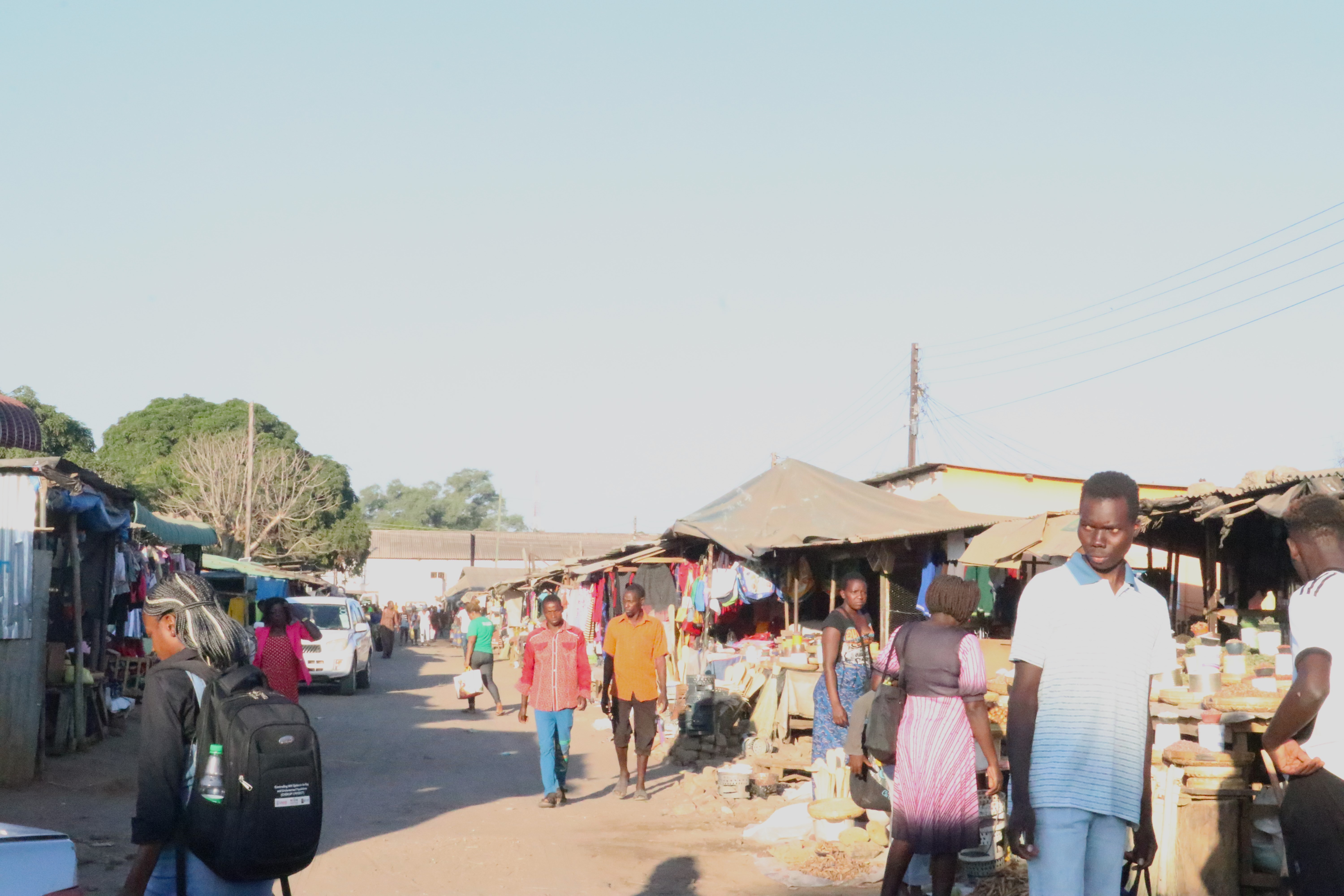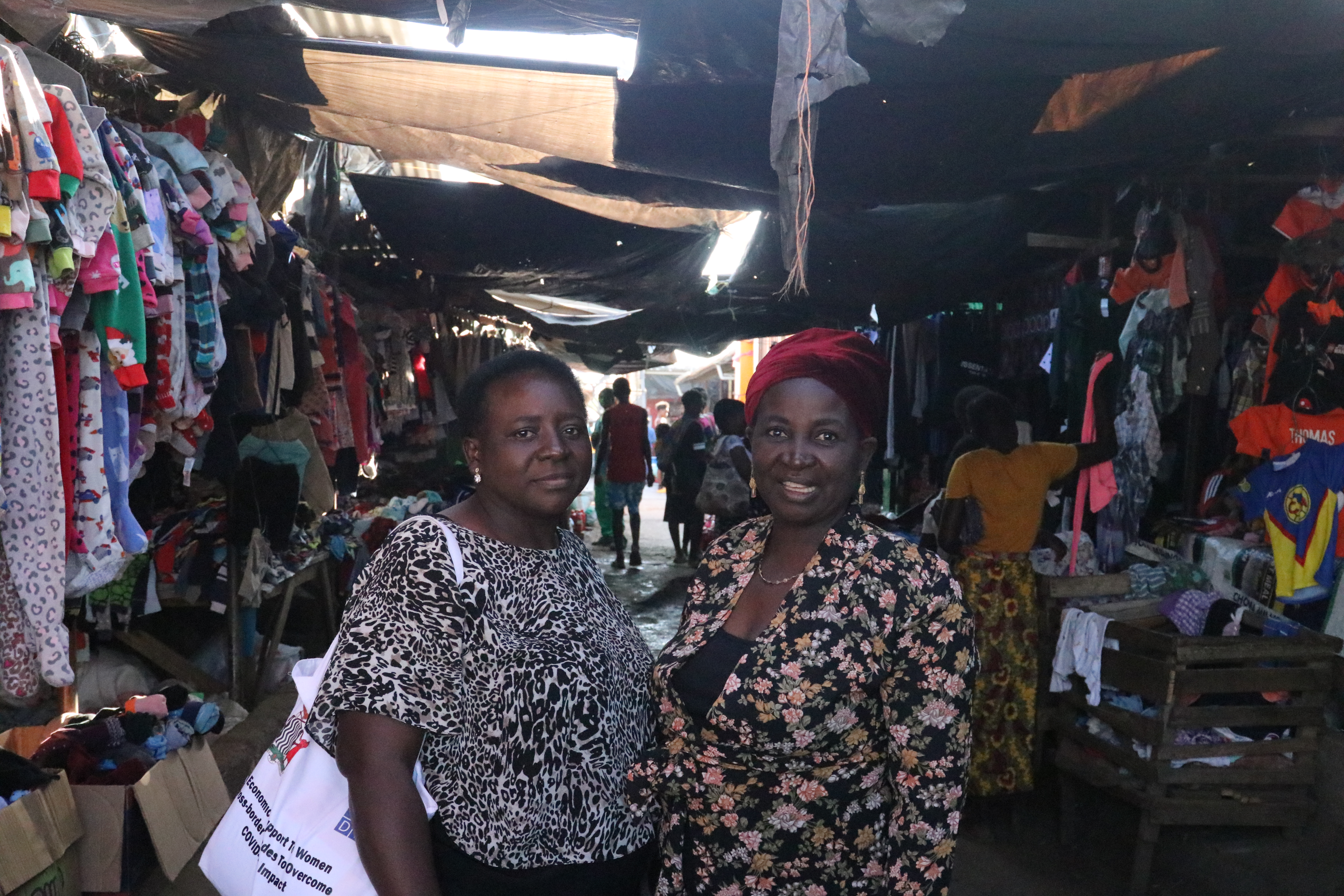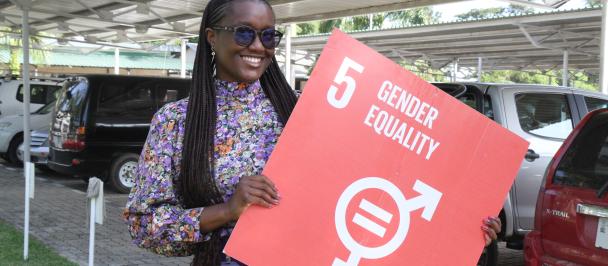Regaining Economic Independence with the "Strengthening Resilience of Female Small-Scale Cross Border Traders through Access to Finance and Capacity Building" Project
Empowering Cross Border Traders: The Story of Emelda and Richard
July 25, 2023

Emelda and Richard in front of their stall in Dambwa Market
In the bustling Dambwa market of Livingstone in Zambia, Emelda Mutinta Matuta and her husband Richard Mulena operate a thriving grocery store. The couple have found success in their business due to their wide range of goods, sourced from the neighbouring countries – fish from Botswana, blankets and cooking oil from South Africa, and groceries and soaps from Zimbabwe. During the pandemic, Emelda and Richard suffered a severe setback as they were completely cut off from these markets. The pandemic-induced travel restrictions disrupted their supply chain leaving them in difficult financial situation. Emelda and Richard's family depended on the sale of existing stock which quickly dwindled, leaving the couple – who look after 5 children, including 2 orphaned family members that they lovingly welcomed into their care – looking for alternative ways to support their family.
Recognizing the plight of families like Emelda and Richard, the “Strengthening Resilience of Female Small-Scale Cross Border Traders through Access to Finance and Capacity Building” project stepped in with a much-needed intervention. Recognising that the pandemic caused restrictions on cross-border trade that led to increased costs of doing business, the need for an intervention that specifically empowered small-scale cross border traders to restart their businesses and to stimulate borderland economies was an obvious action that the UNDP, working in partnership with the International Organisation for Migration (IOM) decided to embark upon. Particularly since small-scale cross border trade is a lifeline for many youths and women living in borderland communities, looking for economic independence and stability, the project set out to support these informal traders’ post COVID-19 recovery.
The identification of this need led to a study that sort to further identify alternative livelihoods in three of Zambia's border towns — Livingstone, Kasumbalesa and Nakonde. Follow-up trainings, facilitated by IOM, were conducted to build on the trader's entrepreneurial skills. To guarantee access to finance, and to capitalize on alternative livelihoods that could provide safety nets for cross border businesses, the project introduced a Revolving Fund Scheme. This proved to be a turning point many of the traders.
Since December 16th, over 170 members of the Livingstone Cross-Border Traders Association (CBTA) have benefitted from a series of disbursements from a ZMW 738 800 or USD 39 093 revolving fund. The revolving fund was managed by the Secretariat of the Livingstone Cross Border Traders Association (CBTA), who distributed micro loans to members that applied to receive the fund. The loan amounts ranged from ZMW 1000 (USD 52) to ZMW 5000 (USD 264) and had to be repaid within 30 days. Emelda and Richard, along with other traders were among the beneficiaries of this fund, both receiving loans of ZMW 3000 which they invested into their shop and repaid within the 30 day period. These loans offered the members of the Livingstone CBTA a means to exercise their financial independence and reinvest in their livelihoods.
Another trader, Mary Kapui, explained that the costs of crossing the borders are high for many small-scale cross border traders. Considering the significant reduction in cash flow that many traders experienced after the global crisis, these costs made it markedly more difficult for many traders to get their businesses off the ground again.
Thanks to the support from the revolving fund many traders are being supported to recoup their businesses amidst the rising cost of living and cost of cross-border trading. They are using the fund to manage their trade fees, allowing them to refocus efforts on adjusting to the new normal.
“For me, I used the loans to pay for the bridge toll fees, transport across the border, customs claims and other fees that come with moving over the border. It has really helped eased some of these costs, they are usually too expensive for me.”— Mary explains.
Furnished with the capital needed to boost the livelihoods of Small-Scale Cross Border Traders who were adversely affected by the restrictions and border closures put into effect during the Covid-19 pandemic, many traders were able to rebuild their businesses and re-open their doors to the public.
Now in the post-pandemic recovery phase, the fund has offered the members of the CBTA an opportunity to reinvest in their businesses and to ensure their steady recovery from the effects of the pandemic restrictions. Traders like Emelda and Richard depended on loans from the revolving fund to pay suppliers and purchase fresh stock from neighbouring countries.
“With the fund, I was able to take a loan to purchase supplies for my store and to boost the cash flow in need to run my business”,— shares Emelda Mutinta Matuta.

Dambwa Market in Livingstone, Southern Province
Looking forward
The secretariat of the CBTA is confident in the future of the revolving fund. They plan to use the profits earned from the loan’s interests to extend the reach of the fund and increase the lending amount from ZMW 5000 (USD 262) to ZMW 8000. “Eventually, all members will be able to benefit from the fund and we will see everyone’s lives change”, shares Betty Chiwali, the Secretary of the Livingstone CBTA.
Emelda is also optimistic about the future. She foresees one past the revolving fund, where her business is more resilient against shocks like the pandemic, where her loans are paid in full, and where her store front sells an even wider range of goods to consumers and traders alike.
“I want to go into wholesale, selling stock from these other countries here to other traders so that they don’t have to deal with the difficult non-tax costs that they struggle with when crossing the borders. It will also help if they close the borders again”— say Emelda, gleaming at her family's prospects for the future.

The Chairperson and Secretary of the Livingstone Cross Border Traders Association
Emelda, Richard, Mary, and countless other traders are living testaments to the power of collective support and financial empowerment. As they continue their journey towards economic independence and growth, the revolving fund will undoubtedly play a crucial role in sharing a brighter and more prosperous future to them.

 Locations
Locations






